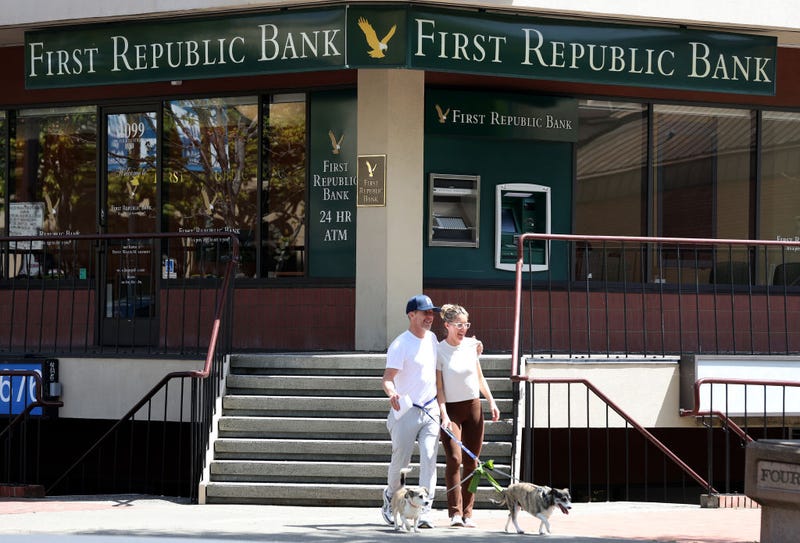
For the third time in two months, a major bank has collapsed and been seized by federal regulators.
The Federal Deposit Insurance Corporation (FDIC) announced Monday that it had taken over First Republic Bank and sold its assets to JPMorgan Chase.
It's the second-largest bank failure in history at over $229.1 billion - eclipsing the Silicon Valley Bank collapse ($209 billion) earlier this year.
First Republic operates 84 branches in eight states, which reopened Monday as JPMorgan Chase branches.
"[Customers] will have full access to all of their deposits," the FDIC said in a statement. "Deposits will continue to be insured by the FDIC, and customers do not need to change their banking relationship in order to retain their deposit insurance coverage up to applicable limits."
In a statement, JPMorgan Chase said it acquired a "substantial amount" of First Republic Bank's assets and certain liabilities, including approximately $173 billion of loans and $30 billion of securities, and is assuming approximately $92 billion of deposits, including $30 billion of large bank deposits.
"Our government invited us and others to step up, and we did," said Jamie Dimon, Chairman and CEO of JPMorgan Chase.
As part of the deal, the FDIC and JPMorgan Chase Bank are also entering into a loss-share transaction covering acquired single-family residential mortgage loans and commercial loans.
"The loss–share transaction is projected to maximize recoveries on the assets by keeping them in the private sector,' the FDIC said. "The transaction is also expected to minimize disruptions for loan customers."
According to the California Department of Financial Protection and Innovation, First Republic Bank was "conducting its business in an unsafe or unsound manner." As of April 13, 2023, the San Francisco-based bank had total assets of approximately $229.1 billion and total deposits of approximately $103.9 billion.
The bank had been struggling after taking on a large amount of uninsured deposits -- above the $250,000 limit set by the FDIC -- and clients started withdrawing their money at the first signs of trouble, to the tune of roughly $100 billion over three months, according to the Associated Press.
The only larger bank failure in U.S. history was Washington Mutual, which collapsed at the height of the 2008 financial crisis, the AP reported. It, too, was taken over by JPMorgan in a similar deal.
The acquired First Republic businesses will be overseen by JPMorgan Chase's Consumer and Community Banking Co-CEOs, Marianne Lake and Jennifer Piepszak.
"First Republic has built a strong reputation for serving clients with integrity and exceptional service," said Lake and Piepszak. "We look forward to welcoming First Republic employees. As always, we are committed to treating employees with respect, care and transparency."
Despite this and other recent bank failures, the U.S. Treasury Department assured the public not to worry.
"The banking system remains sound and resilient, and Americans should feel confident in the safety of their deposits and the ability of the banking system to fulfill its essential function of providing credit to businesses and families," a spokesperson said in a statement, per NBC News.
Federal regulators estimate the collapse of the First Republic Bank will cost the Deposit Insurance Fund about $13 billion.


